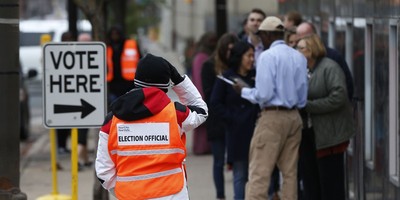On Super Sunday, Europe dodged a shooting war ... but just barely.
Thank Serbia's electorate -- at least 50.5 percent of them -- as Serbia's current president, Boris Tadic, narrowly defeated "ultra-nationalist" Tomislav Nikolic. Tadic opposes renewed warfare and supports Serbia's economic and political integration with Western and Central Europe.
Nikolic looks east -- to Russia. He doesn't shy from violent threats, either. "Ultra-nationalist" in the context of contemporary Eastern Europe and Central Asia is something of a euphemism for "21st century fascist." That's a freighted description, but Nikolic's "irredentist" land claims, insistent political exploitation of historical grievances and a violent brand of ethnic identity politics justifies it.
History does not repeat itself, not exactly. In 1933, a fascist didn't have nuclear weapons. Not that Nikolic does, either -- but the day before the election he promised that if he were elected he would ask the Russia Air Force to patrol Serbian air space. Nikolic added that he stood "for military cooperation with Russia" and emphasized that he opposes a "NATO presence in Serbia in any form."
NATO peacekeepers still patrol Kosovo. Nikolic was telling Serbian voters he would toss NATO out of Kosovo -- and remove the force that prevents renewed combat and ethnic cleansing.
Perhaps most Americans have forgotten the 1999 Kosovo War, the Clinton administration's war to stop a Serb-led genocide in Kosovo. Serbians haven't, Albanians haven't, nor has Vladimir Putin's newly muscular Kremlin. Perhaps Americans thought that "little" Balkan war was over and done. Serbs don't think so, Albanians don't, nor does the Kremlin.
The "Kosovo problem" was the primary election issue in Serbia. That made the election a major battle in that still simmering Balkan war. Fortunately, Serbs waged Sunday's battle with ballots instead of bombs. Unfortunately, with men like Nikolic getting 49 percent of the vote, bombs (whether delivered by unconventional ethnic and religious terrorists, or conventional strike aircraft) remain a terrifying possibility. In the Balkans, "little" events have a track record for igniting large-scale slaughter -- with World War I as a bitter example.
Recommended
The Kosovo conundrum is an ugly clash with no gentile resolution.
For the last nine years, the Kosovo tug or war between Belgrade and Kosovo's ethnic Albanian majority has challenged diplomatic creativity. European Union and United Nations diplomats have explored several options, including a vague policy called "conditional independence," but ultimately either Kosovo becomes independent or in some fashion remains politically tethered to Serbia.
Kosovar Albanians demand independence. They claim they cannot be secure in any state dominated by Serbs.
Serbs demand Kosovo remain part of Serbia. Kosovo was the core of Serbia's medieval empire and is particularly dear to the Serbs. In 1389, Turkish Sultan Murad I's legions defeated Christian forces under Serbian Prince Lazar at the Battle of Kosovo. (Yes, in the Balkans, nations venerate defeats -- not an optimistic sign.)
For the United States, NATO and the European Union, however, Russian intransigence, energy supplies and nuclear weapons are the most vexing issues framed by the Kosovo problem. The Kremlin, concerned about Chechnya, fears that Kosovo's "unilateral" independence will establish a "separatist precedent" for carving states from sovereign nations.
As the 21st century begins, Balkan and Eastern European nations are looking for new political accommodations -- and these include joining NATO or the European Union. The idea is that "internationalization" and an "expanded political identity" dampen ethnic and nationalist passions and thus reduce the chance of conflict. The European Union is supposed to do this for Western and Central Europe (keep France and Germany from destroying each other). NATO and Partnership for Peace (PFP, also called "NATO Lite") are security organizations, but at the political level they serve the same purpose. For example, Hungarian and Romanian membership in NATO has greatly reduced the potential for conflict over Transylvania, a Romanian region with an ethnic Hungarian majority.
This indirectly takes us back to Serbia. President Tadic received a solid majority of ethnic minority votes in Serbia, especially among ethnic Hungarians living in Serbia's Vojvodina region. Serbia's Hungarians see the benefit of the "expanded political identity" of the European Union. Pray that Tadic can nudge Nikolic's 49 percent in that "westerly" direction.
























Join the conversation as a VIP Member